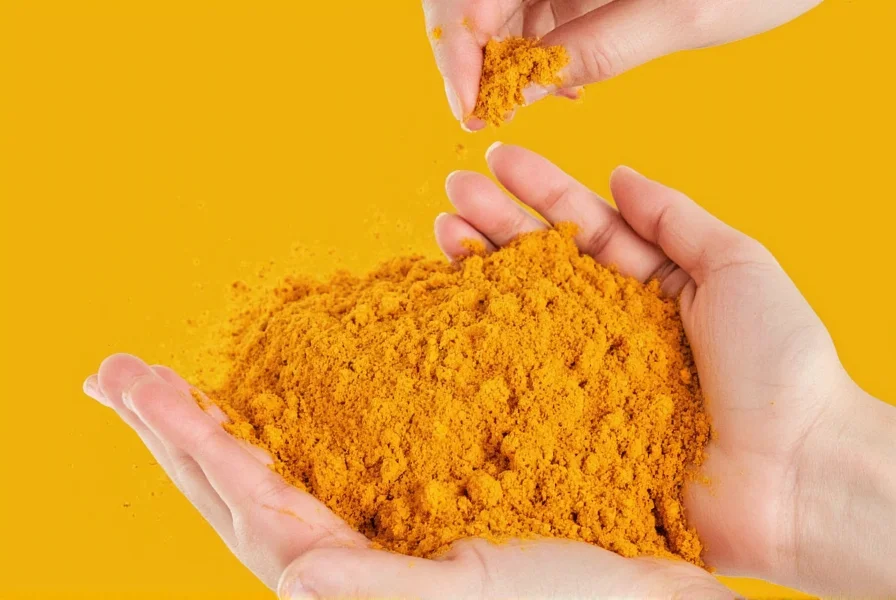Understanding the proper pronunciation of culinary and medicinal terms matters, especially for a globally popular ingredient like turmeric. Whether you're discussing its health benefits, ordering it at a market, or following a recipe, saying it correctly ensures clear communication. The word follows standard English pronunciation patterns once you break it down into its three distinct syllables: TUR-muh-rik.
Breaking Down Turmeric Pronunciation
The correct pronunciation divides neatly into three parts:
| Syllable | Pronunciation | Phonetic Spelling |
|---|---|---|
| First | TUR | /tɜːr/ |
| Second | muh | /mə/ |
| Third | rik | /rɪk/ |
When saying the word, emphasize the first syllable strongly while keeping the second syllable soft and unstressed. The final syllable has a crisp \"k\" sound, not a drawn-out \"ee\" sound that many mistakenly add.
Common Turmeric Mispronunciations
Even experienced cooks and health enthusiasts frequently mispronounce turmeric. Here are the most common errors:
- Tur-MER-ik - Incorrectly emphasizing the second syllable
- Tur-MER-ee-ik - Adding an unnecessary extra syllable
- Tur-MER-ick - Overemphasizing the final \"k\" sound
- Too-mer-ik - Mispronouncing the first syllable
These mispronunciations likely stem from unfamiliarity with the word's etymology and the tendency to force unfamiliar words into familiar English pronunciation patterns.

Origin of the Word and How It Affects Pronunciation
Turmeric's linguistic journey explains why it's pronounced the way it is. The word entered English through Latin terra merita ("meritorious earth"), referring to its soil-like appearance and medicinal value. Earlier, it came from Arabic kurkum, which itself derived from Sanskrit haridrā.
This complex etymology explains the seemingly irregular English pronunciation. Many words that entered English through multiple languages retain pronunciation patterns from their intermediary languages rather than their original forms. Understanding this background helps remember that the \"tu\" in turmeric follows the same pattern as \"turban\" and \"tureen\" - both of Arabic origin.
American vs. British English Pronunciation
While the basic pronunciation remains consistent across English dialects, subtle differences exist:
- American English: \"TUR-muh-rik\" with a slightly more pronounced \"r\" sound
- British English: \"TUR-muh-rik\" with a softer \"r\" and sometimes a slightly longer final vowel
Neither variation is incorrect - both represent standard pronunciations within their respective dialects. The key is maintaining the correct syllable stress pattern regardless of regional accent.
Using Turmeric Correctly in Conversation
Here are examples demonstrating proper pronunciation in context:
- \"I added a teaspoon of TUR-muh-rik to my golden milk recipe.\"
- \"The anti-inflammatory properties of TUR-muh-rik make it valuable in traditional medicine.\"
- \"When selecting TUR-muh-rik, look for deep orange powder that stains your fingers.\"
Notice how the emphasis on the first syllable creates a natural rhythm in the sentence. This pattern holds whether you're discussing culinary uses, health benefits, or purchasing the spice.
Why Correct Pronunciation Matters
Properly pronouncing specialized terms like turmeric serves several important purposes:
- Ensures clear communication when discussing recipes or health topics
- Builds credibility when sharing knowledge about nutrition or cooking
- Respects the cultural origins of the ingredient
- Prevents confusion with similar-sounding terms
In professional culinary or healthcare settings, precise terminology demonstrates attention to detail and respect for the subject matter. While minor pronunciation variations are understandable, knowing the standard form helps avoid persistent errors.
Frequently Asked Questions
How do you pronounce turmeric in medical contexts?
In medical and scientific contexts, turmeric maintains the same pronunciation: \"TUR-muh-rik\" (\/\'tɜːrmərɪk\/). Healthcare professionals and researchers consistently use this pronunciation when discussing curcumin (the active compound in turmeric) and its potential health benefits.
Is there a difference between turmeric and tumeric pronunciation?
No, \"tumeric\" is simply a common misspelling of \"turmeric\" - the correct spelling includes double \"r\" and \"c\" at the end. Both refer to the same spice, and the pronunciation remains \"TUR-muh-rik\" regardless of which spelling appears in writing. The misspelling likely contributes to pronunciation confusion.
Why do people mispronounce turmeric as tur-MER-ik?
The mispronunciation \"tur-MER-ik\" likely occurs because English speakers often emphasize the second syllable in three-syllable words ending with \"-ic\" (like \"music\" or \"magic\"). However, turmeric follows different linguistic patterns due to its Arabic and Latin origins, requiring first-syllable emphasis. This pattern mismatch causes the common error.
Does turmeric pronunciation vary in different countries?
While regional accents affect all words, the standard pronunciation \"TUR-muh-rik\" remains consistent across English-speaking countries. In non-English speaking countries, pronunciation follows local language rules - for example, in Spanish it's \"tur-MER-ik\" with second-syllable stress, and in French it's \"tur-MEH-rik\". When speaking English, however, the first-syllable emphasis should be maintained.
How can I remember the correct turmeric pronunciation?
Try this memory aid: Think of the phrase \"The TURtle has MURky vision when eating turmeric.\" The repeated \"ur\" sound in the first two words reinforces the correct first-syllable emphasis. You can also break it into syllables while saying: \"TUR (like 'turn') - muh (like 'mud') - rik (like 'rick')\". Regular practice with this pattern will make the correct pronunciation feel natural.










 浙公网安备
33010002000092号
浙公网安备
33010002000092号 浙B2-20120091-4
浙B2-20120091-4